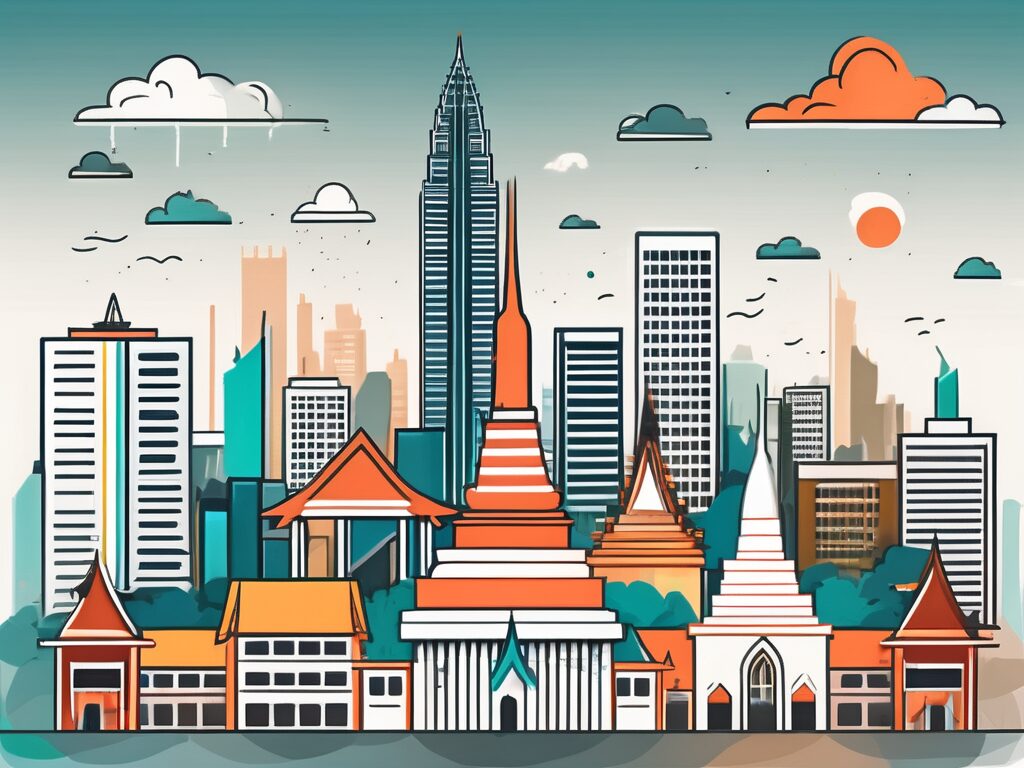The bustling city of Bangkok, known for its vibrant street life and cultural landmarks, is also home to an array of international schools. These institutions are renowned for their commitment to providing high-quality education, with a particular emphasis on curriculum development. But what exactly does this entail? Let’s delve into the fascinating world of curriculum development in Bangkok schools.
Understanding Curriculum Development
Before we dive into the specifics, it’s crucial to understand what curriculum development entails. In a nutshell, it’s the process of designing and organising the content and methods of instruction in an educational system. Think of it as the blueprint for learning – it outlines what students should know, understand and be able to do at the end of a specific period of study.
Curriculum development is not a one-size-fits-all process. It varies greatly depending on the educational philosophy of the school, the needs of the students, and the requirements of the local and international education authorities. It’s a dynamic process that requires constant review and adjustment to ensure that it remains relevant and effective.
The Bangkok Context
Now that we have a basic understanding of curriculum development, let’s turn our attention to the Bangkok context. Bangkok schools, particularly international ones, are known for their diverse student population. This diversity presents both opportunities and challenges in curriculum development.
On one hand, the multicultural environment enriches the learning experience, allowing students to gain a global perspective. On the other hand, it requires a curriculum that caters to a wide range of learning styles, cultural backgrounds, and language proficiencies. This is where the expertise and creativity of curriculum developers come into play.
Curriculum Models in Bangkok Schools
There are several curriculum models that are commonly used in Bangkok schools. These include the British, American, International Baccalaureate (IB), and Thai curricula. Each has its own strengths and is suited to different educational goals.
The British Curriculum
The British curriculum, also known as the National Curriculum for England, is known for its rigour and breadth. It covers a wide range of subjects and provides a balanced education. In Bangkok, schools following this curriculum often add an international dimension to make it more relevant to their diverse student body.
The American Curriculum
The American curriculum, on the other hand, is known for its flexibility. It allows for a high degree of customisation to cater to individual student interests and abilities. Schools in Bangkok that use this curriculum often incorporate elements of Thai culture and language to provide a more localised learning experience.
The International Baccalaureate (IB) Curriculum
The IB curriculum is a globally recognised curriculum that aims to develop inquiring, knowledgeable, and caring young people. It’s known for its inquiry-based approach and emphasis on developing students’ critical thinking skills. Many Bangkok schools offer the IB curriculum due to its strong international reputation and transferability.
The Thai Curriculum
Last but not least, the Thai curriculum focuses on instilling a sense of national identity and cultural pride. It covers similar subjects to the other curricula but places a greater emphasis on Thai language, culture, and history. Some international schools in Bangkok offer a dual curriculum, combining the Thai curriculum with one of the international curricula.
Key Considerations in Curriculum Development
Developing a curriculum that caters to the diverse needs of Bangkok’s international school students is no easy task. It requires a deep understanding of the students’ backgrounds, interests, and learning styles. It also requires a commitment to inclusivity, ensuring that all students, regardless of their abilities or backgrounds, have access to a high-quality education.
Another key consideration is the integration of technology. Bangkok schools are increasingly recognising the importance of incorporating technology into the curriculum. This not only prepares students for the digital age but also enhances their learning experience by making it more interactive and engaging.
Finally, curriculum developers must also consider the local context. This includes the Thai culture, language, and educational regulations. Incorporating these elements into the curriculum helps to ensure that it is relevant and meaningful to the students.
Conclusion
Curriculum development in Bangkok schools is a complex, dynamic process. It requires a delicate balance of meeting international standards, catering to a diverse student population, and incorporating the local context. Despite the challenges, the schools’ commitment to providing a high-quality, inclusive education remains unwavering. As we move into an increasingly globalised world, the importance of a well-rounded, culturally responsive curriculum cannot be overstated.
Elevate Your Teaching Career with IPGCE
As you reflect on the importance of curriculum development in Bangkok’s international schools, consider the role you could play in shaping the future of education. IPGCE offers a pathway to enhance your qualifications, connect with a global network of educators, and gain a deep understanding of international curricula. Embrace the opportunity to progress in your career, increase your earning potential, and overcome the isolation often felt in the teaching profession. Join the UK’s #1 Teacher Training Course and transform your educational impact. Enroll in the iPGCE program today and take the next step towards excellence in education.

